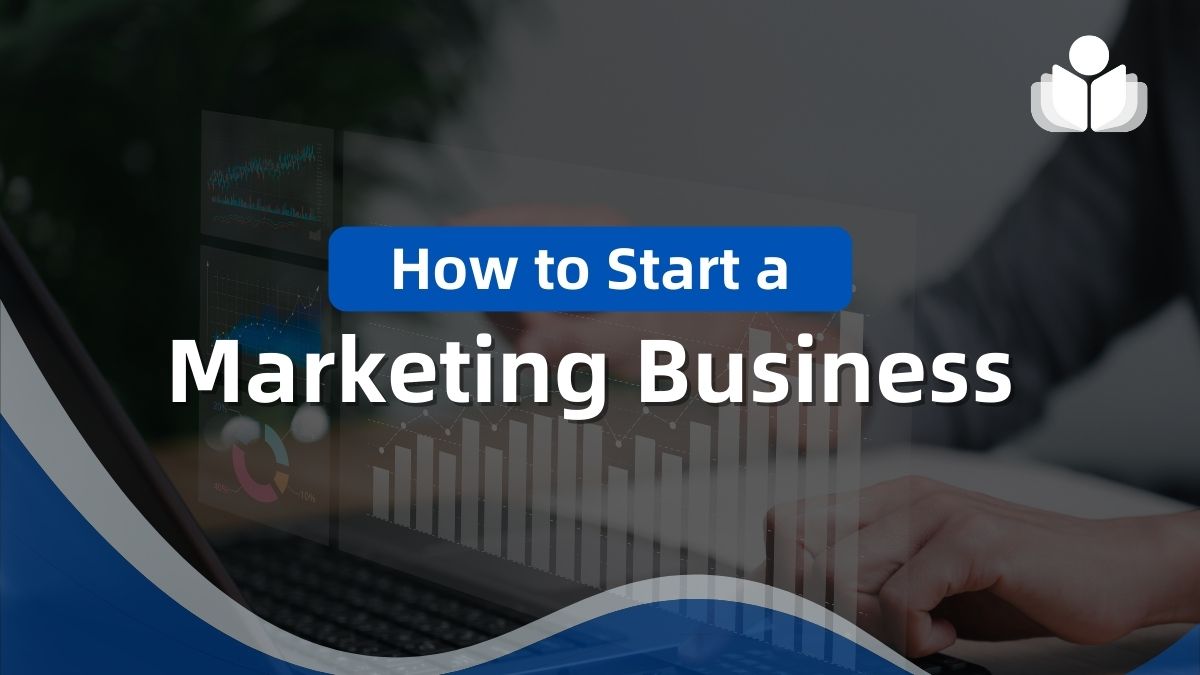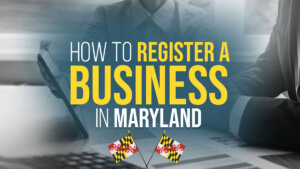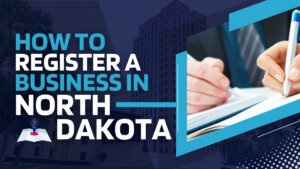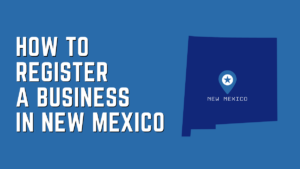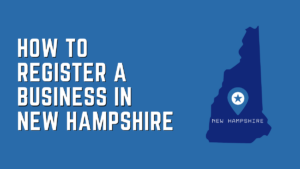Are you dreaming of launching a marketing agency? With a whopping 428,744 advertising agencies around the globe, you’re not alone in this bustling arena! You may be a marketing pro eager to chart your course or an entrepreneur fired up about branding and strategy.
Either way, starting a marketing agency offers excitement and lucrative potential. However, navigating the startup phase can feel like a maze: what services to offer, who to target, etc.
That’s why we’re here to help, with insights from seasoned agency owners designed to lift your business off the ground. This guide explores finding your niche, crafting a compelling brand, wooing clients, and delivering stellar service. Ready to dive deep? Let’s get started.
>> Start a Digital Marketing Agency With Tailor Brands >>
What Is a Digital Marketing Agency?
A digital marketing agency crafts and steers digital marketing campaigns for various companies. Such agencies offer multiple services, from website design to Search Engine Optimization (SEO), content marketing, social media marketing, and even pay-per-click advertising.
Using the internet’s might and various innovative tools, digital marketing agencies propel businesses toward their goals with unprecedented speed and efficiency. It’s a modern-day toolkit for achieving growth and success in the digital realm.
What Are the Types of Digital Marketing Agencies?
Digital marketing agencies are as varied as the businesses they serve, making it a bit of a puzzle to determine the best match for your needs. Let’s simplify things by looking at some of the most common types:
- Full-Service Digital Agencies. These powerhouses handle website design, SEO, content creation, social media management, and beyond. Opt for these if you’re after a one-stop shop for all your digital marketing efforts.
- Specialized Digital Agencies. These agencies hone in on specific areas of digital marketing, like social media or PPC advertising. They’re the go-to for businesses seeking deep expertise in particular channels.
- Freelance Digital Agencies. Often just one-person shows, these freelancers offer digital marketing services across various disciplines, working on a project-by-project basis. They might charge by the hour or a fixed rate, providing flexibility and personalized attention.
>> Get Started With Tailor Brands >>
How to Start a Marketing Agency Business Step-by-Step
1: Do market research
2: Identify a Viable Target Market
3: Define Your Niche
4: Market Your Agency
5: Hire a Team
6: Register Your Business
7: Find Your First Clients
8: Perfect Service Delivery
9: Launch and grow your business
Step 1: Do Market Research
Pinpointing your ideal clients and their specific needs is crucial for any budding agency. By getting a firm grip on what prospective clients require, you can zero in on the services both in high demand and lucrative, optimizing your chances of success with your target market.
Here’s a streamlined approach to identifying your target audience:
- Analyze Your Current Customers: If you’ve been in the industry for a while, reflect on your previous clients. Who meshed well with your methods? Note any common traits among them, such as age, location, and interests, to pinpoint your ideal demographic.
- Scope Out the Competition: What other agencies are offering similar services near you? Who appears first in search results for the services you’ll offer? Study these competitors’ advertising tactics and messages to craft an outstanding strategy.
- Stay Atop Industry Trends: Use tools like Moz for SEO insights, Semrush for PPC and SEO, and Google Ads Keyword Planner for keyword research to stay current with market trends and refine your focus.
- Harness Social Media: Investigate your competitors’ social media profiles or those in related industries to see what content resonates with audiences. Tools like SparkToro and Google Trends can also illuminate audience behaviors and preferences.
- Use Surveys and Polls: Surveys or polls can deepen your understanding of their preferences by accessing a potential customer list. Social media polling features, email campaigns, or even phone surveys are used to gather data. Consider hiring a professional survey company for targeted questions.
- Create Buyer Personas: With your collected data, develop detailed buyer personas. These profiles will guide your marketing strategies and help you tailor your messaging for specific audience segments.
Understanding the competitive landscape is equally vital. Knowing what your competitors excel at—or where they falter, can provide a competitive advantage. Many tools are available to analyze competitors’ services, pricing, and customer feedback, helping you carve out your own niche in the market.
Step 2: Identify a Viable Target Market
Kicking off a digital marketing agency begins with zeroing in on your target market. Consider who your ideal customer is and what specific services they’re looking for.
Reflect on which types of businesses stand to gain the most from digital marketing. Are there certain industries lagging behind in the digital realm? Who holds the reins for making decisions in these organizations?
A clear understanding of your target market will enable you to tailor your campaigns and services. Diving into the latest trends and industry benchmarks will further sharpen your business strategy, ensuring your approach resonates with potential clients immediately.
Step 3: Define Your Niche
After pinpointing your target market, the next vital step is to carve out your niche. Consider the array of services you plan to offer. How about setting specific rates for your social media services? Is there a particular industry or technology you want to focus on?
You may specialize in certain types of campaigns. Clarifying the scope of your digital marketing services will help you make effective business decisions.
Think about what sets your agency apart. What unique offerings can you bring to the table that would make potential clients choose you over others? Standing out is crucial in the bustling digital marketing sector.
Specializing in a niche allows you to streamline your service delivery. This efficiency speeds up the client onboarding process and ensures a more uniform and high-quality experience for all your clients. This focus can significantly enhance client satisfaction and operational efficiency.
>> Get Started With Tailor Brands >>
Step 4: Market Your Agency
Now that you’ve defined your niche, it’s time to spread the word and craft a killer marketing strategy for your agency. Here’s how you can get started:
Create a Website
Creating a website is a foundational step for launching your digital marketing agency. A well-designed website serves as a hub where potential customers can discover what makes your agency the right choice. It’s essential for showcasing your work and services, building trust, and making it easy for clients to reach out.
Get on Social Media Channels
Social media is a powerful tool for broadcasting your brand to potential clients. Platforms like LinkedIn, Twitter, Instagram, and Facebook allow you to engage with users, share content, and build relationships. Regular posting and interaction are key to enhancing your online presence.
Consider leveraging ads or sponsored posts to extend your reach further. If you need a hand, our guides can help you kickstart your LinkedIn or TikTok profiles.
Start Cold Outreach
Cold outreach is an effective strategy for boosting your agency’s visibility and connecting directly with potential clients. It involves sending emails, making calls, or networking in person with prospects who may not yet know about your services.
Maintaining a professional yet approachable demeanor and understanding what the prospective client needs is crucial. Once you’ve established a rapport, you can explain how your services could help them meet their digital marketing objectives.
>> Start a Digital Marketing Agency With Tailor Brands >>
Step 5: Hire a Team
Snagging the right crew is crucial once your digital marketing agency kicks off. The team’s vibe can elevate or tank your biz, so scout for folks who know their stuff and are also hyped about their work.
You may think small with a band of freelancers or go all in with full-timers. Either way, set up clear role expectations, offer training, and cultivate a space where everyone can flourish.
With a solid squad, your agency can offer top-notch services and reach new heights. So gear up, recruit savvy marketers, and watch your digital empire expand!
Step 6: Register Your Business
Kicking off your marketing biz involves some groundwork, like sorting out LLC docs, picking a registered agent, and pinpointing your target market and sales strategy. Wondering how to tackle it all? Here’s a handy guide to get you started.
Pick Your Business Structure
You’ve got options: a sole proprietorship or starting an LLC. Rolling solo? A sole proprietorship keeps it simple with one owner, zero annual state filings, and minimal start-up costs. But, heads up, building credit or snag outside funding might be tougher. Plus, tax bills could be heftier.
Leaning toward an LLC? This setup shields your personal treasures from business debts and legal woes. It’s trickier to set up, but it could mean lower business taxes and easier access to loans. Overwhelmed by the red tape?
A registered agent can handle the nitty-gritty of state requirements, like fees and annual filings. Or, consider a business formation service to take the paperwork load off your shoulders while you focus on firing up your venture. Ready to explore some top-notch business formation services? Here’s where you can start:
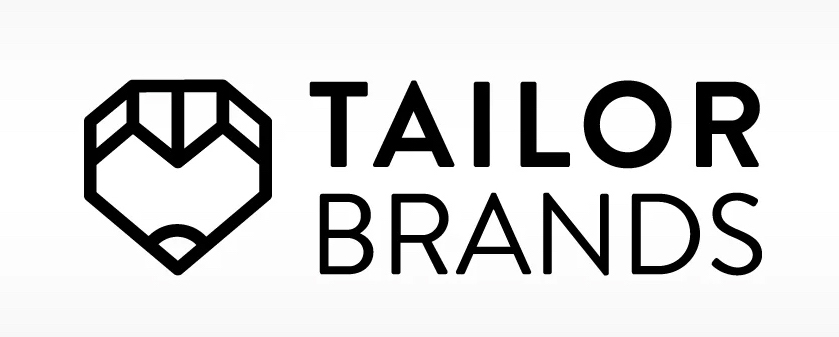
Tailor Brands is your go-to online hub for hassle-free business registration. They’ve designed a slick, user-friendly platform perfect for entrepreneurs eager to get their ventures up and running swiftly.
Through a straightforward, step-by-step process, they guide you through all the legal hoops and essential paperwork to launch your business as its legal entity officially.
With Tailor Brands, securing a tax ID number, registering for required licenses and permits, and tapping into a wealth of resources becomes a breeze, setting you up for success right from the start.
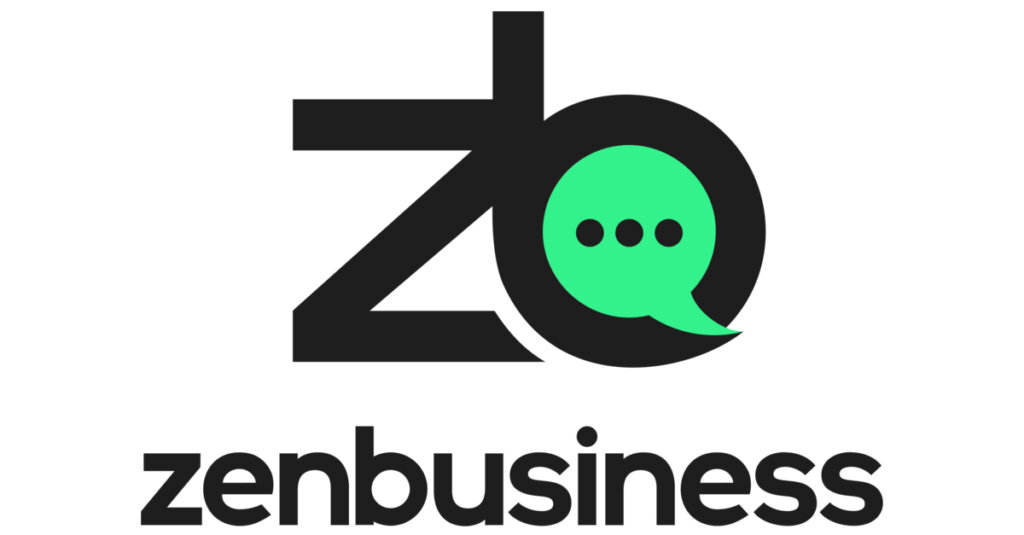
ZenBusiness is one of our top business registration services, offering quick filing solutions and affordable incorporation rates. Their customer service team is always ready to assist with any questions throughout the process, although they’re not equipped to provide legal advice.
While starting a business might seem straightforward, maintaining one can be more challenging. ZenBusiness makes it easier by providing tools to streamline management tasks. They can assist with organizing tax documents or act as a registered agent, freeing you up to focus on other aspects of your business.

Northwest Registered Agent stands out in the company registration arena with its firm commitment to transparency and a genuine approach to customer service. They treat customers like real people, not just numbers.
They’re upfront about pricing, so you won’t find hidden fees. Their customer service is top-notch, accessible, and focused on getting things right from the start. Plus, they prioritize keeping your private information secure, ensuring peace of mind for business owners.
Step 7: Find Your First Clients
Scoring your first clients might seem intimidating, but success lies in taking the initiative. Dive into reaching out to potential customers who could benefit from what you offer. Try networking at industry gatherings, crafting cold emails, or even posting your services on job boards.
Once you’ve connected with these prospects, keep the momentum going. Follow up regularly and update them on any new services or exciting projects you’re rolling out. This proactive approach keeps the conversation alive and builds lasting relationships.
Step 8: Perfect Service Delivery
Capturing clients is just the first act of running an agency; delivering top-notch service is the second. As a marketing agency boss, your focus shouldn’t be bogged down by the minutiae of service delivery, that’s a pivotal shift from freelancer to agency head.
While a freelancer pours hours into direct client tasks, an agency owner needs to craft systems, coach teams, and chase new business. This strategic approach is key to juggling client acquisition and consistent quality output.
To scale effectively, consider the tasks you perform over and over. How can you automate these or delegate them to cost-effective team members? Building a strategy to streamline repetitive tasks through technology or delegation is essential for your agency’s growth and efficiency.
>> Get Started With Tailor Brands >>
Is a Digital Marketing Agency a Good Business to Start?
The pandemic reshaped business strategies across the board, notably in how companies reach potential customers. With more people glued to their screens at home, digital marketing has become even more crucial. And this trend doesn’t seem to be fading post-pandemic.
Seeing this surge, launching a digital marketing agency could be a savvy move, especially if you’ve already tasted success as a marketing freelancer or you’re a veteran marketer. What is the allure of running your own online advertising business?
It’s not just about being your own boss; it’s also the chance to attract larger clients and potentially skyrocket your earnings. However, keep in mind that increased revenue comes with its own set of risks and complexities.
If you’re relatively new to the marketing scene or have a lighter experience, it’s wise to pump the brakes and ask yourself a few critical questions before plunging into the agency world. These questions can help you eliminate illusions and truly grasp what it takes to run a thriving digital marketing agency.
In short, starting a digital marketing agency is still a great business venture, just ensure you’re prepared by asking the right questions first.
1. Is There Demand for Your Service?
Suppose you’re considering launching a digital marketing agency because you trust your marketing skills or are confident you’ll pick them up as you go. In that case, consider the following questions:
“Are other agencies offering the services I plan to provide?” Additionally, “Are businesses out there searching for an agency or individual who offers what I can?”
If your answer to the second question is yes, you’re in a good position to proceed. The most effective way to confirm demand for your services is to contact potential clients.
2. Can You Produce Results?
If you’ve spent time in marketing, you likely have some insight into this already, which is why starting as a freelancer or securing a job in digital marketing is an excellent strategy.
Working in this field allows you to:
- Gain hands-on experience in digital marketing
- Identify the niches or services you excel in
- Build a personal reputation and portfolio
Being a proven results producer sets you apart from many agencies that don’t significantly benefit their clients and neglect to use analytical tools like Semrush to monitor outcomes. You can successfully grow your agency with even basic sales skills and a knack for delivering results in today’s marketing environment.
3. Can You Build a Team?
The team dynamic is the key distinction between freelancing and managing an agency. Scaling up involves implementing systems and hiring people to oversee those systems. Integrating part-time and full-time employees requires you to navigate various legal, recruiting, training, and management challenges.
You’ll spend significantly less time on marketing and more on mastering diverse business skills. Are you prepared to handle the pressures of managing and growing a team?
4. Are You Committed Enough?
Running a business is a marathon, not a sprint. Once you’ve built up a client base and have employees counting on you for their livelihoods, the stakes are high every single day.
Not every day will be perfect—far from it. You’ll need to stay committed even during tough times, like when that first client takes longer to land than you hoped, when you lose a client, or when an investment in a tool, course, or employee doesn’t pan out.
That’s why having a genuine passion for marketing and a deep interest in the types of businesses you want to serve is crucial—it’s what will keep you going when the going gets tough.
5. What Do You Want Out of Your Agency?
This question digs deeper than just whether to start a marketing agency; it’s about what you aim to achieve with your agency.
This involves defining what you want your business to look like and crafting a clear vision. Launching a digital marketing agency without a vision is akin to cooking dinner blindfolded. Here are a few vision ideas that you can mix and match:
- Some agencies prioritize time freedom, focusing on low-maintenance clients, remote work, and simple systems.
- Others aim to maximize profits by scaling quickly and securing high-paying clients.
- Some strive for status and reputation, seeking to work with high-profile clients.
- Others look to maximize opportunities by forming strategic partnerships with like-minded businesses or individuals.
- Some agencies focus on maximizing creativity, choosing projects that allow them to make a creative impact.
Remember, there’s no one-size-fits-all answer for your vision, and you don’t have to limit yourself to just one approach.
>> Get Started With Tailor Brands >>
Is a Digital Agency Profitable? And Which Business Model Is Best?
As mentioned before, there are several ways to charge your clients. No matter which method you choose, the bright side is that digital marketing agencies can be highly profitable. According to NYU Stern’s database, which includes over 7,000 companies, the average profit margin sits at 7.9%.
Digital agencies, in particular, can see profit margins as high as 40%, largely due to their ability to operate fully remotely. This significant potential for profitability should motivate you to consider starting your own digital marketing agency.
Tools You Need to Run a Digital Marketing Agency
When you’re at the helm of a digital marketing agency, equipping yourself with the right tools is crucial for success. You’ll need a variety of essential tools to manage your operations effectively.
This includes email marketing, project management software, analytics tools, and automation platforms. These resources are vital for streamlining processes, enhancing productivity, and ensuring your business runs smoothly.
Email Marketing Solutions
Email marketing is a powerful tool for engaging potential customers and keeping them informed about your products or services.
Automated email sequences are effective for nurturing leads, strengthening relationships, and enhancing conversion rates. MailChimp and Constant Contact are widely used for these email marketing strategies.
Project Management Software
Project management software helps you stay organized and track all your projects. It usually includes capabilities like task tracking, collaboration tools, and reporting features, which enable more effective management of your client campaigns. Monday and Asana are popular project management tools.
Social Media Management Platforms
Automating the process is essential if your agency focuses on managing social media campaigns. Gain is a useful tool that streamlines social media workflows, facilitates collaboration among team members, and schedules and publishes content across various social media platforms.
It also provides features such as approval workflows to manage your clients efficiently, content calendars, analytics, and reporting. It integrates with Canva, simplifying getting visuals approved.
Analytics Tools
Analytics tools are crucial for assessing the effectiveness of your digital marketing campaigns and monitoring social media KPIs. Google Analytics is a valuable choice, offering detailed insights into website traffic, user behavior, and crucial conversion metrics. Other favored tools include native social media analytics or Rival IQ.
Automation Platforms
Automation platforms are invaluable for streamlining operations and handling repetitive tasks like posting blog entries or dispatching emails. Zapier and Parabola are well-known options for such automation.
Equipping your digital marketing agency with the right tools simplifies management and guarantees effective results delivery to your clients.
Is Starting a Digital Marketing Agency Worth It?
As we wrap up this guide, you might ponder one final question. “Is starting a digital marketing agency worth it?” The answer is a resounding yes.
Suppose you possess the drive, dedication, and skills to deliver results for your clients, manage a team of marketing experts, and effectively market your agency to attract new business. In that case, there’s every reason to believe you can create a successful and profitable business.
How to Start a Marketing Business – FAQs
Final Thoughts – How to Start a Marketing Business
Launching a marketing agency can be thrilling and fulfilling, provided you’re ready to put in the effort. By adhering to these steps and investing in the right tools and team, you can set your business up for long-term success.
Also, remember to keep a pulse on industry trends and monitor your competitors to stay ahead of the game. With dedication and hard work, you can build a thriving business that delivers exceptional services to its clients.
 Sections of this topic
Sections of this topic
